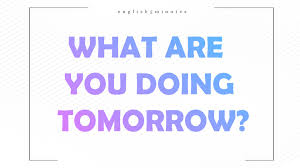
by Martin Burke | Nov 17, 2020 | This is how we say it
When speaking to my students of English I notice that they are often very unsure about using the expression ‘have got’, when talking about possession. I can completely understand that. After all, when learning English at elementary level, it is always easier to learn...

by Martin Burke | Nov 6, 2020 | This is how we say it
This is a reminder to learners of English that we do not use the Future Simple ‘will’ as often as you might think. In fact, if you use that tense in the wrong situation to talk about the future, it ‘will’ sound unnatural… so, be warned! Present Progressive (or...

by Martin Burke | Oct 23, 2020 | This is how we say it
In a recent conversation, a student told me that she had ‘passed’ her holidays in Corsica. To a native English speaker, this sounds incorrect. When French learners of English want to translate ‘passer le temps’ into English, they need to know that there are two...

by Martin Burke | Sep 21, 2020 | This is how we say it
In conversations with my English language students I often hear them using the adjectives ‘much’ and ‘many’ in positive sentences. For example, ‘’I have many friends in this town’’, and ‘’I have much time with my family’’. Grammatically, there is nothing wrong with...

by Martin Burke | Jan 26, 2020 | This is how we say it
I recently had an exchange of messages with one of my students, in which I said “I do hope that you get better soon.” She was unsure why I would use the auxiliary verb “do” in this sentence, because English learners are taught that we use “do” in the Present Simple...

by Martin Burke | Jan 16, 2020 | This is how we say it
I’ve noticed quite a number of my (otherwise linguistically competent) learners of English making the following (admittedly not very serious) mistake when translating the French word ‘après’. In fact, it’s not really a mistake as such, but another example of something...








Recent Comments